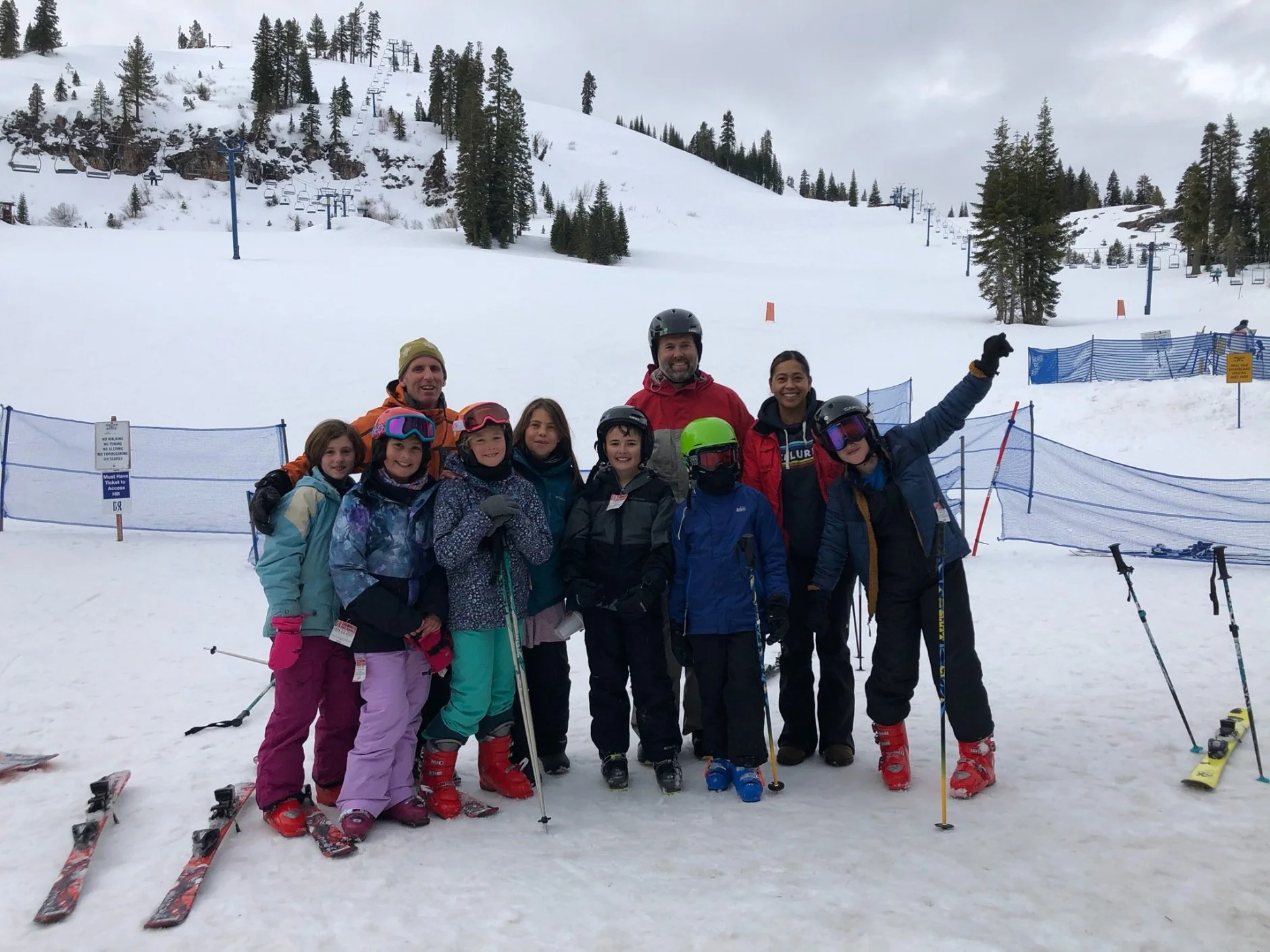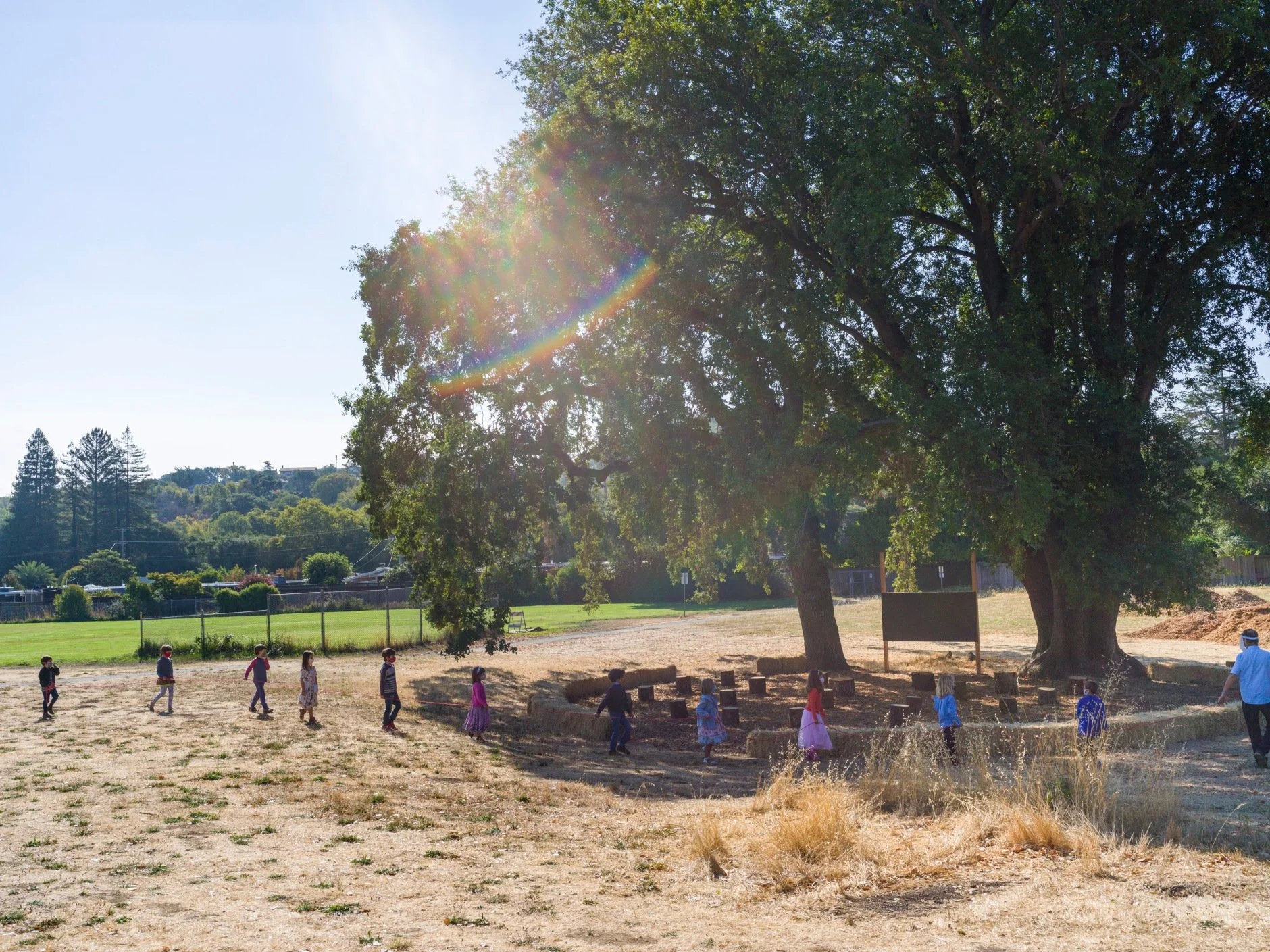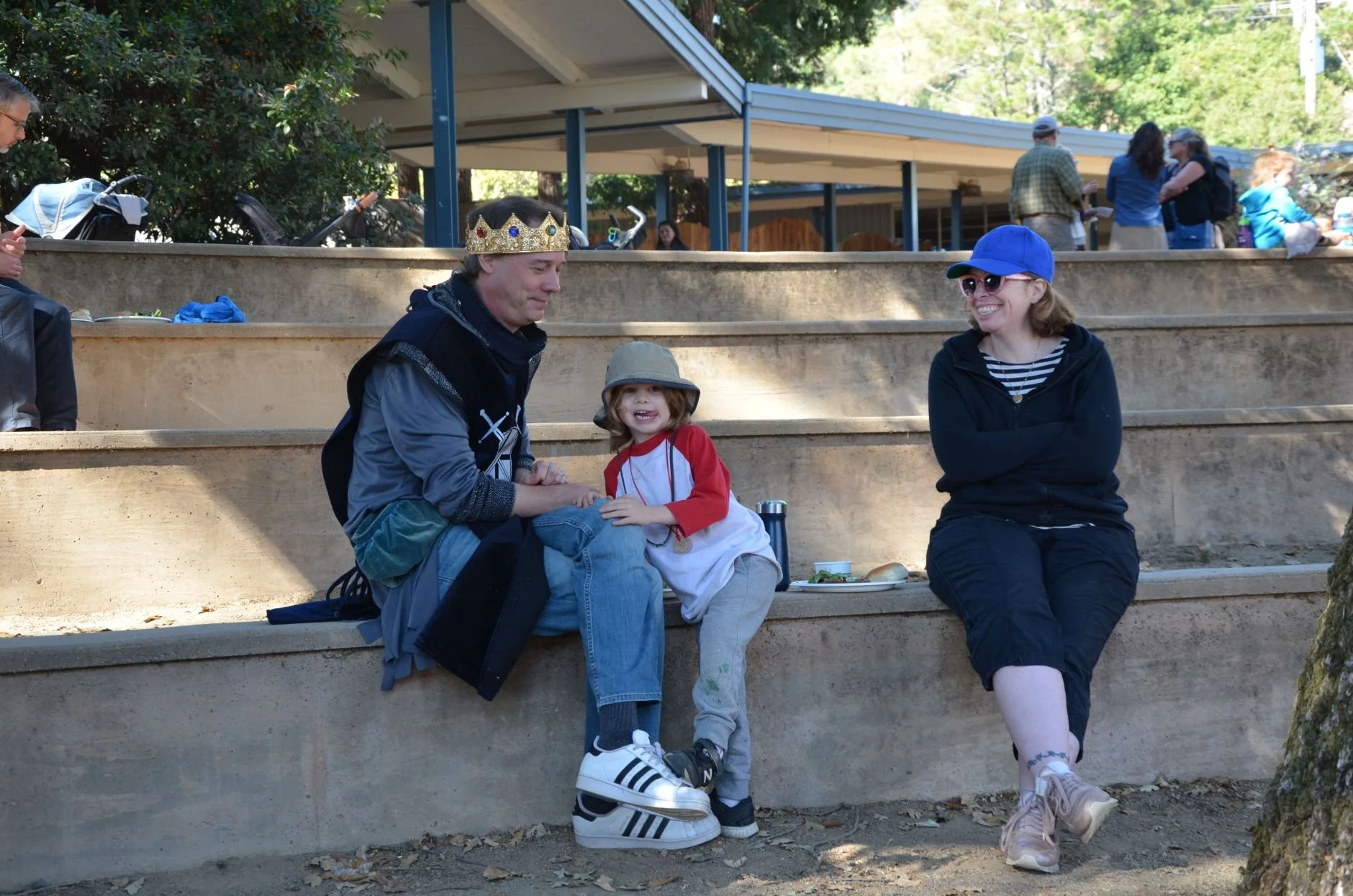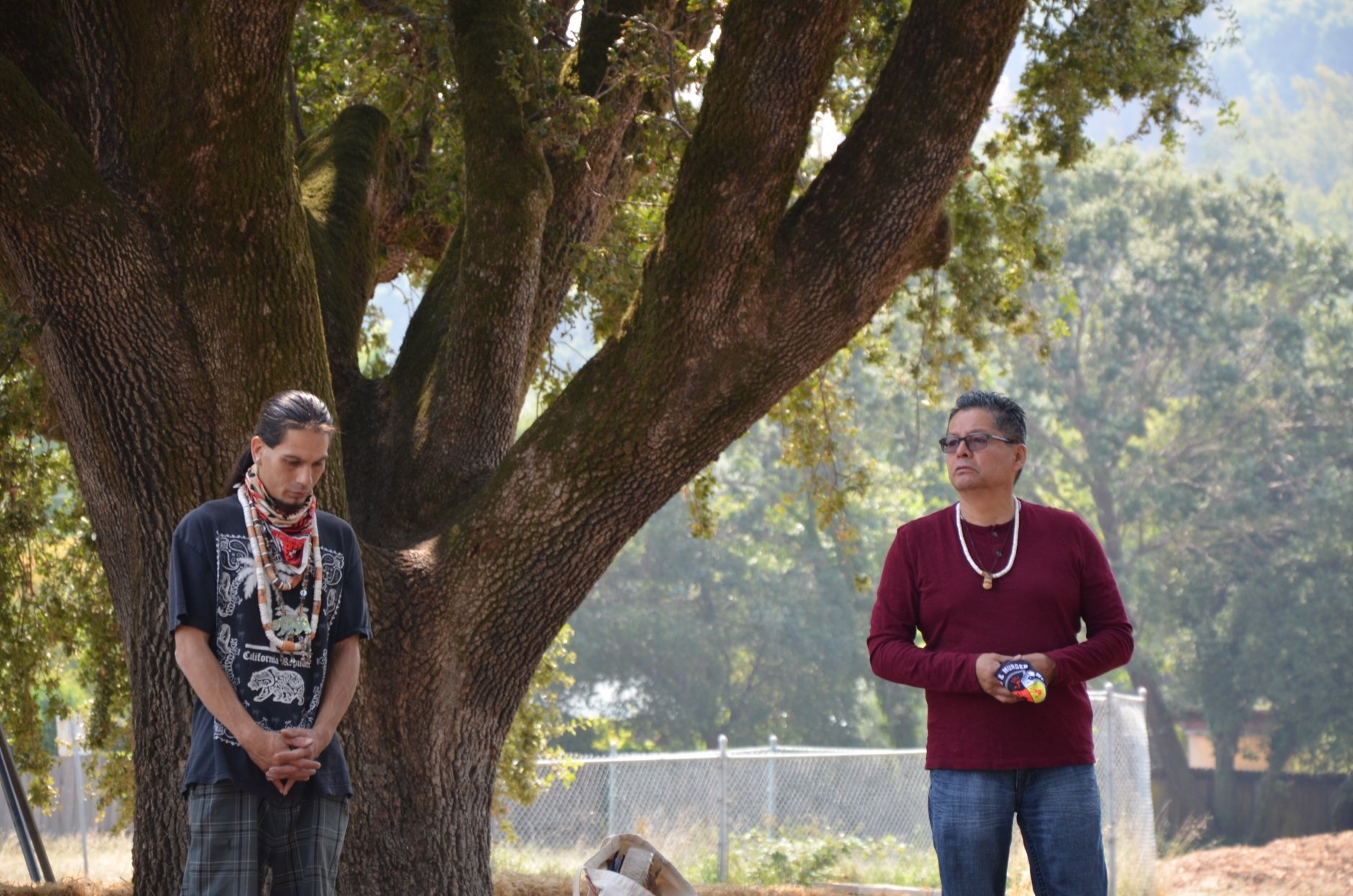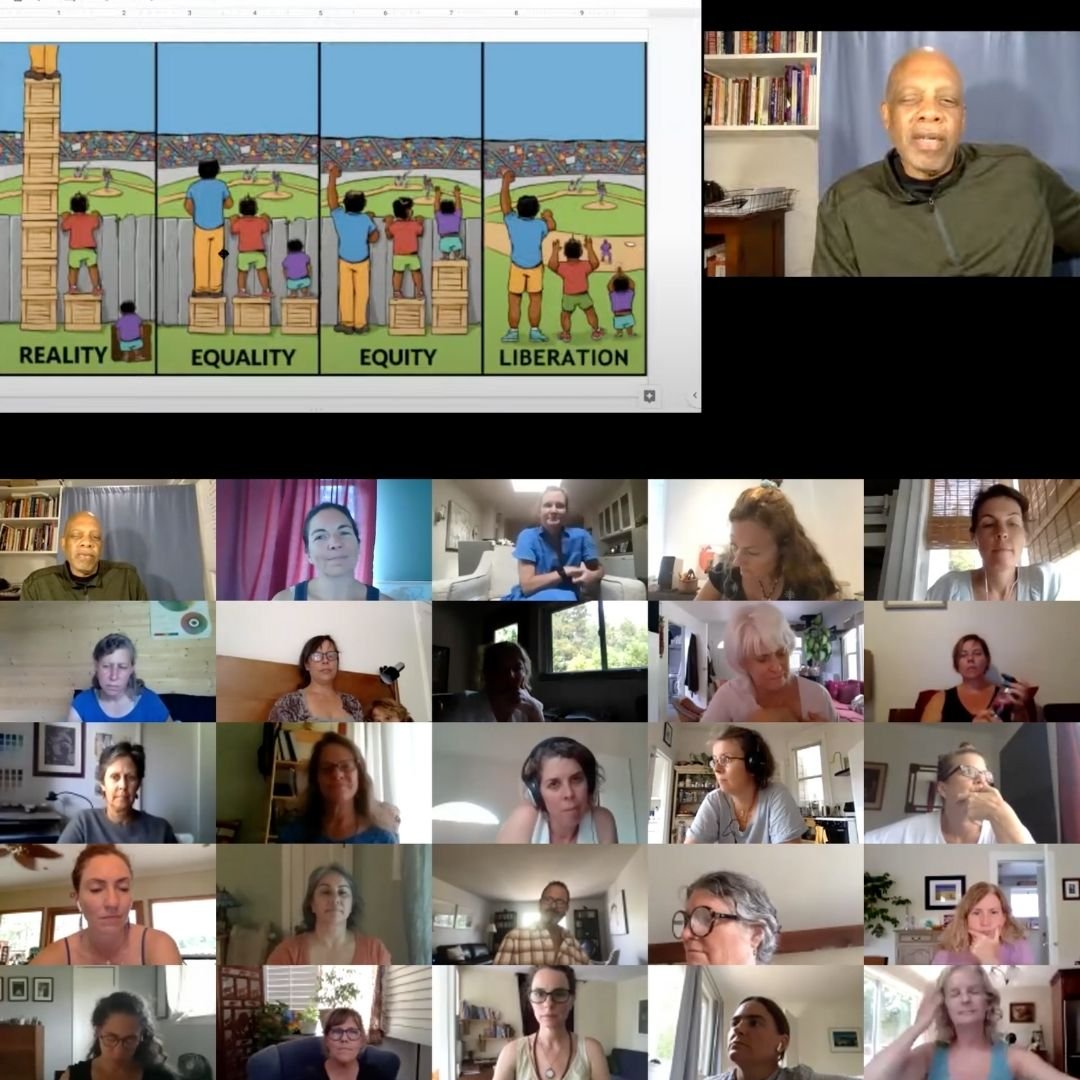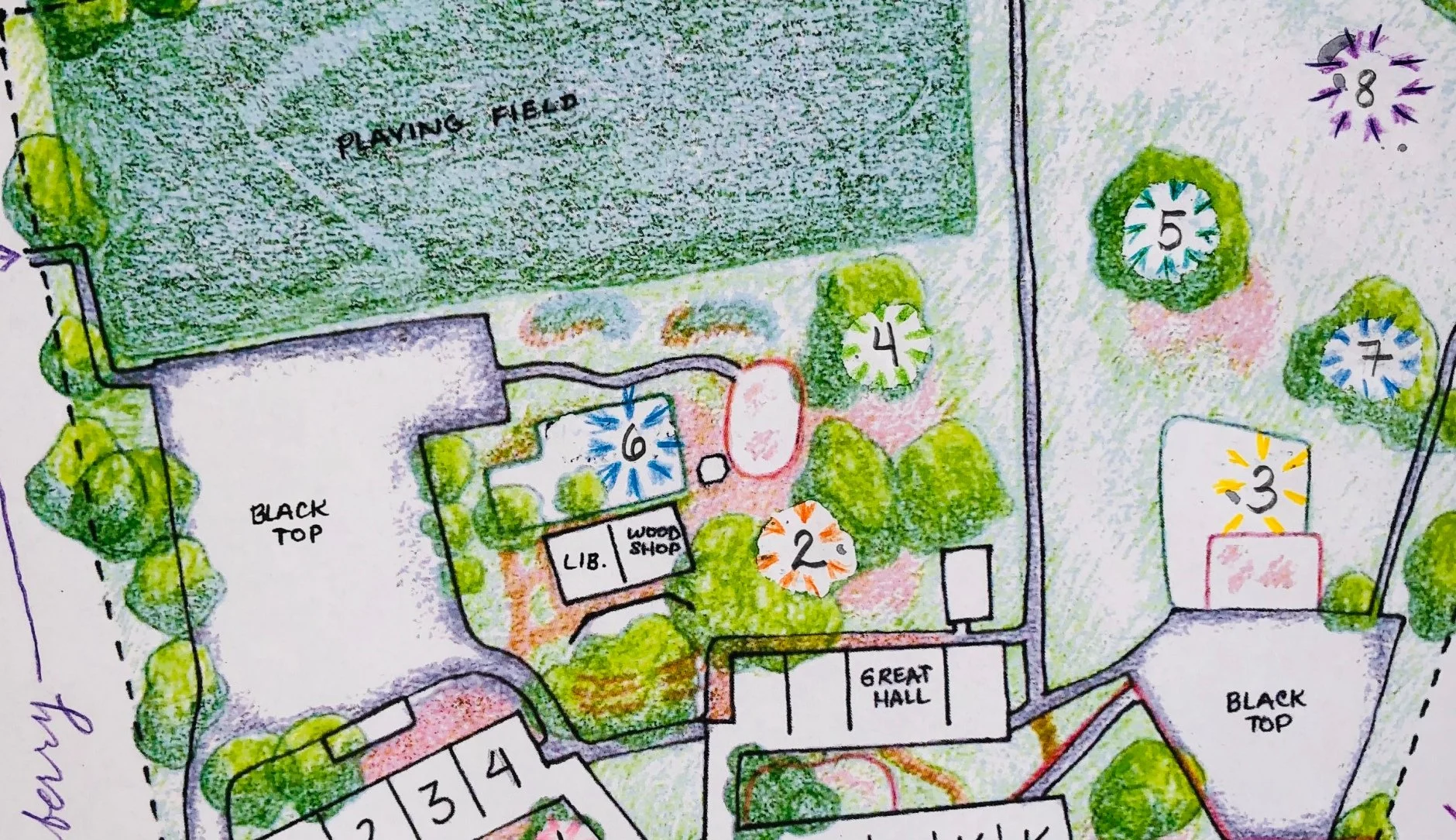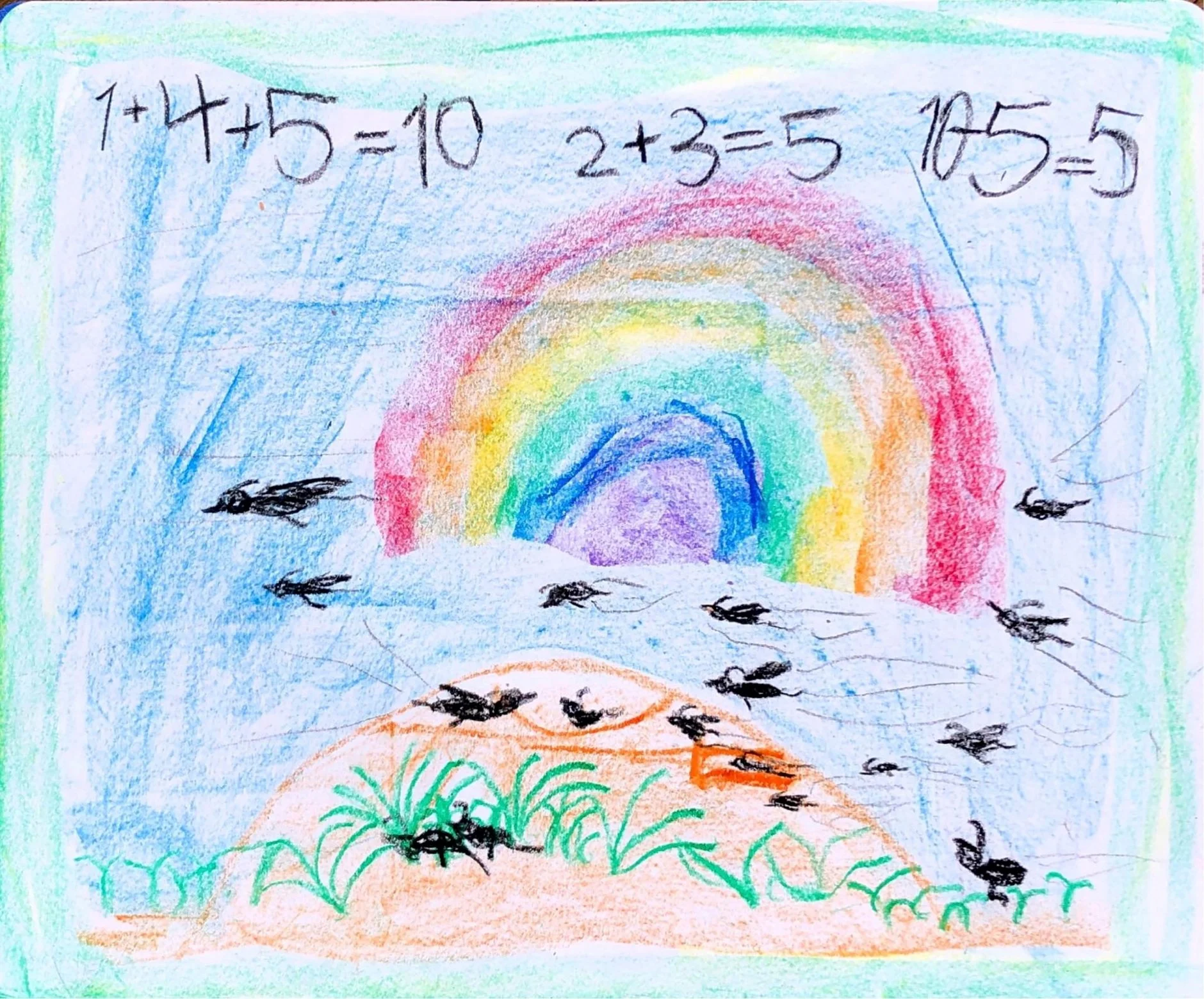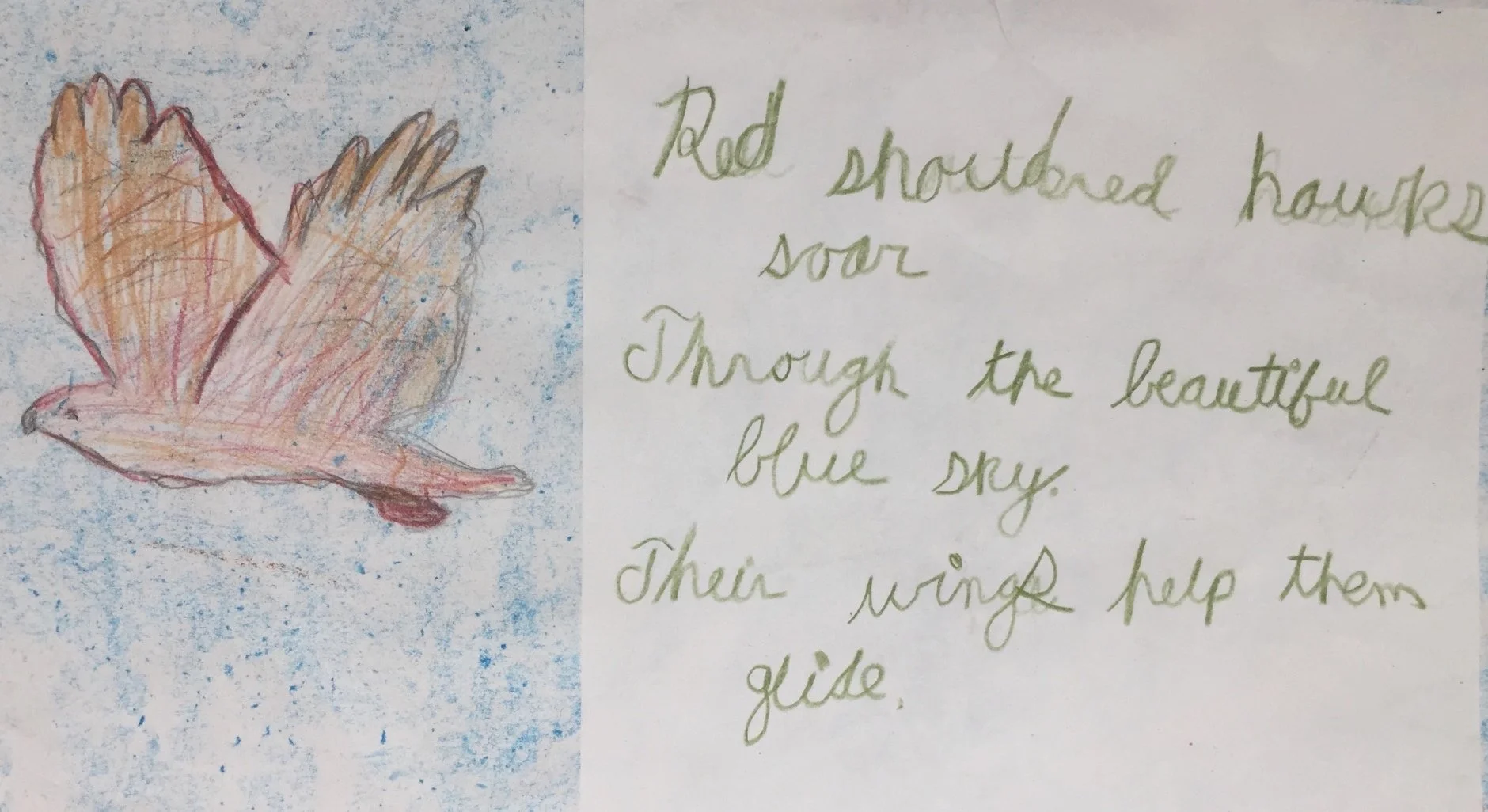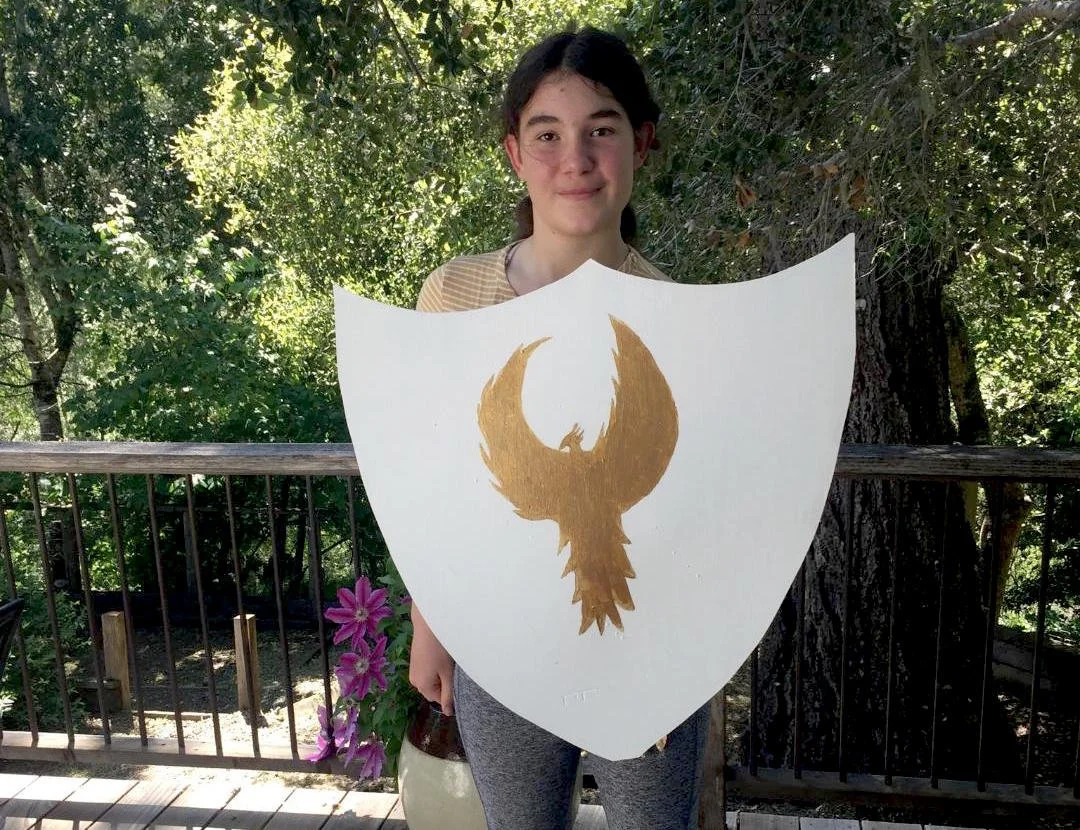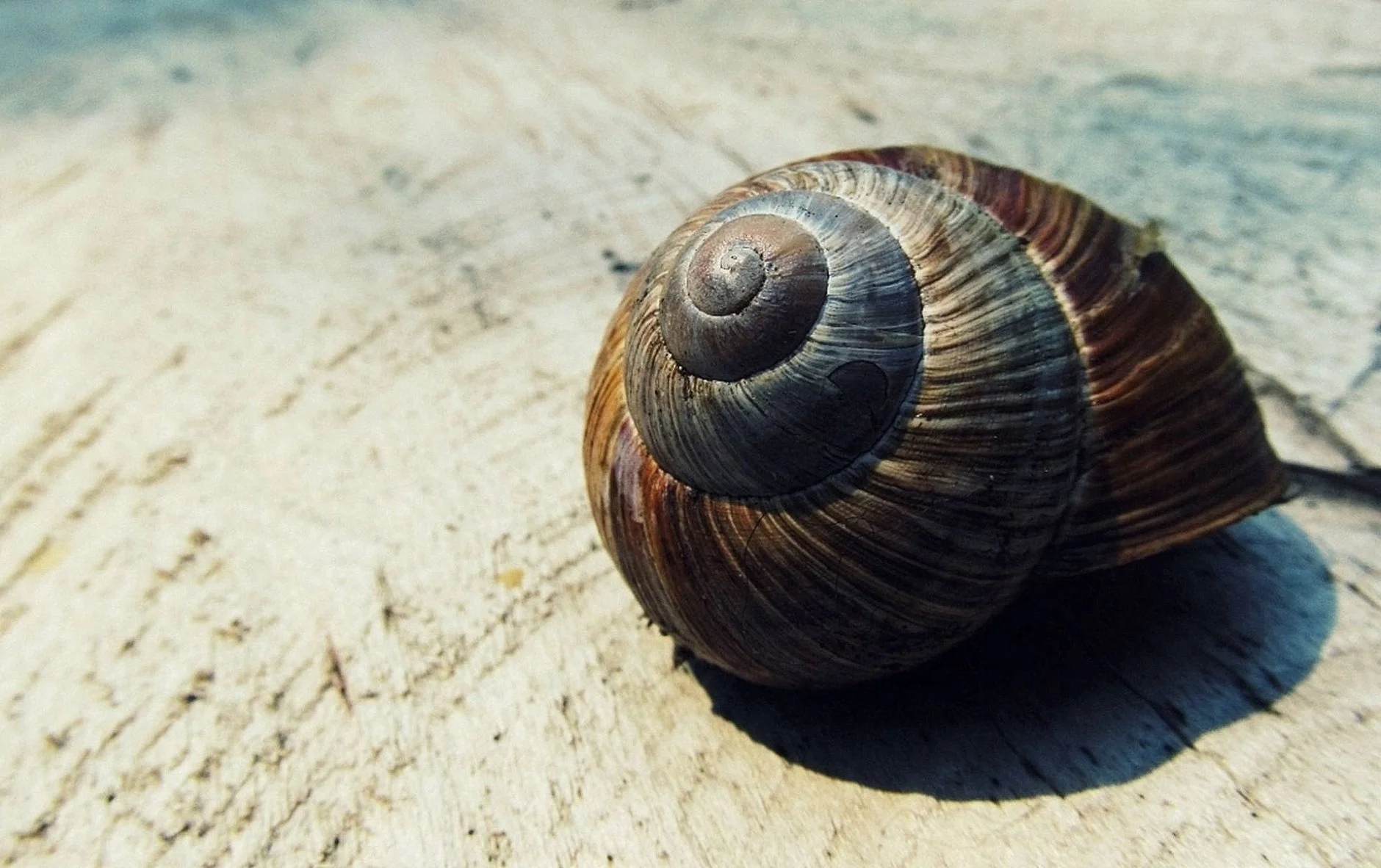Music is an essential part of the curriculum at Marin Waldorf School. Throughout the day, children in the preschool and kindergarten sing with teachers and classmates, learning not only the songs but how to listen and to work together as a group.
Read MoreA native East Coaster, Adam Stopeck met his life’s calling as a Waldorf teacher (and his future wife!) on a chair lift in Colorado. He joined MWS last year after decades as a class teacher in Carbondale, Colorado, and Vancouver Island, British Columbia, taking the lead in our now-6th-grade class. Read about his early days as a basketball aficionado, ski bum, and would-be Socrates, and what he loves about teaching the grades in the interview below.
Read MoreOur extraordinary autumn began with power tools and wheelbarrows, hammers and hard work, as faculty, students, parents, and staff came together in small groups to construct our outdoor classrooms. Right before campus opened, we were joined by two members of the Miwok tribal council to talk about the land and prepare the campus to receive our students.
Read MoreA native of the Netherlands and a graduate of the Waldorf teacher training program in Stuttgart, Germany, Marieke Duijneveld joined the MWS family two years ago as a mom to four students before taking a place on our faculty last year as a parent-child teacher. In the fall of 2020, Marieke took the lead in the Morning Glory kindergarten class, where she leads twice-weekly song-filled play-based hikes in the hills around school. Read on to hear how Marieke’s free spirit and a love for adventure has propelled her across the world and all the way to Marin County.
Read MoreRaised in Zhangzhou City, China, Sally Li has followed her heart around the globe and through diverse careers before she joined the faculty at Marin Waldorf School this fall, where she currently teaches Mandarin to grades 2, 3, 4, and 5.
Read MoreIn the second installment of our interview series, we’re introducing the delightful Manzanita early childhood assistant teacher Rod DeRienzo. Mr. Rod is known to many children on our campus as the famous voice of the Gold Monkey and Jeremy the Giant, two characters from an original story series he created for his daughter (if you aren’t a fan already, you can listen to one of his stories by clicking here). To grades students, he’s Mr. DeRienzo, last year’s lead aftercare teacher and the creator of stories about Phillipe, Suzette, and the mice of Córdoba.
Read MoreToday, we are beginning a new (mostly) weekly column in our school newsletter and on Grandmother Oak, focused on stories, lessons, and insight from our faculty and staff. For some, becoming a Waldorf teacher is a lifelong calling. For others, a more unexpected and circuitous path led to our school. We want to share these stories, as well as lessons and stories from our students in each classroom, from preschool to 8th grade.
Read MoreYesterday, Dean and Jason, two representatives from the Coast Miwok Tribal Council, joined our faculty and staff on campus. We gathered in the shade of Grandmother Oak, where Dean and Jason spoke their truth, told us about their ancestors, shared their knowledge of the land, and invited us to reflect more deeply on the place we live, the land our school occupies, and the history we teach. It was a fitting start to a school year that will begin during a global pandemic, and one in which the natural world (particularly the beautiful valley oaks and bay laurel trees on our campus) will play an outsize role in our experience. To conclude, they joined us in a walk-through of our school’s outdoor classrooms, in preparation for our students’ arrival.
Read MoreAs we mourn yet another senseless death of a Black man at the hands of police and continue to see the lives of Black, Brown and Indigenous people compromised and threatened, we are continuing to dedicate ourselves to the work of social justice and bringing your children an antiracist education.
Read MoreIf you’ve been following along on this blog or are already a member of the MWS community, you know we’ve been working hard all summer to prepare our school’s outdoor classrooms for a safer reopening of campus this fall. Last week, our school applied for a waiver from the county and state to reopen to in-person learning on September 8.
Read MoreWhen schools closed in March, it quickly became clear how important personal relationships between students and teachers are to a productive learning environment. For some schools, turning to the innovative idea of “looping,” or keeping the same teacher with a fixed class of students for two or more years, is a way to strengthen the bonds between class and teacher. Last week, KQED shared the story “How Teacher Looping Can Ease the Learning Disruptions Caused by Coronavirus,” in which writer Kara Newhouse discusses the benefits of looping.
Read MoreThis summer, our faculty and staff are busy creating beautiful, sun-shaded outdoor classrooms across our 11-acre campus so that our students may more safely return to in-person education in September. (Read more here.) While outdoor classrooms may sound nontraditional, learning outside is, in fact, nothing new in a Waldorf school.
Read MoreAt Marin Waldorf School, we nourish the relationship between children and the natural world. Starting in early childhood, our students spend ample time outdoors, playing, hiking, and lunching beneath the oak trees. As grades students, they hike in the open space that surrounds our school, care for and study our campus flora, and work in our school’s abundant garden.
Read MoreMr. DeRienzo, our school’s aftercare lead teacher, is a storyteller extraordinaire. This summer, he’s sharing a series of original audio stories featuring an imaginative cast of recurring characters, appropriate for preschool-and-kindergarten-age children (appropriate and enjoyable for older children too)!
In our first tale, Gold Monkey and Jeremy the Giant accompany Mr. DeRienzo’s sidekick Ozzi to help the fairies in the forest. It’s fun work … but silly antics always ensue when our friend Gold Monkey is involved!
Read MoreThis week, our First Grade teacher, Ms. Weger, shared this lesson from the last block of the year.
The First Grade students have been reviewing the four math processes of addition, subtraction, multiplication and division in their last three-week block of the year. Typically, a nature story of some kind is told, and the children follow along, inwardly calculating as they go.
During this block, the main lesson concluded with the students writing their math sentences from the nature story in their books with a drawing of their choosing. Here is the math story:
Read MoreThis week, 2nd Graders demonstrated their creativity, as well as their understanding of parts of the English language, by composing and illustrating haiku poems that describe the world around them. Below, our 2nd Grade teacher Ms. Martin shares her lesson, as well as some samples of student work.
Read MoreThe interdisciplinary and experiential nature of Waldorf education encourages students to explore topics with their hands, with their hearts, through art, and through doing. A few days ago, we highlighted the way our gardening teacher, Ms. Betsyann, tied the 7th Grade curriculum to work in the garden with a video about spirals in the natural world.
Read MoreFifth Grade’s botany block begins with the study of mushrooms, working its way to trees and flowering plants. Our 5th Grade teacher, Mr. Stopeck, shared these wonderful main lesson pages created by his students.
Read MoreThroughout the grades, the Waldorf curriculum is interdisciplinary and experiential, helping students make connections between different subject matter and to understand their place in the natural world. This week, our gardening teacher, Ms. Betsyann, shared this example of how two subjects can be beautifully integrated in the 7th Grade curriculum.
Read MoreThe class: Outdoor Education. The challenge: to create an outdoor hand-washing station using everyday things you can find in your home.
In this video, our outdoor ed teacher Mr. Neale shows middle school students how he created a simple apparatus you can use to wash your hands when camping, on a kayaking trip, or at the beach.
Read More
